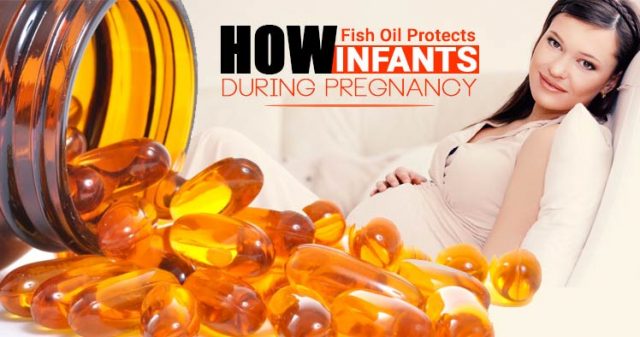When a woman is pregnant she thinks twice before eating anything. After all the baby is fed on what she takes during pregnancy. And when it comes to the supplements, she is all the more hesitant. However, new researches have revealed that Omega-3 polyunsaturated fatty acids found in abundance in fish oil can be variously beneficial for your foetus.
Omega-3 Polyunsaturated Fatty Acids
Delivering a healthy and happy baby to this world, is what every mother-to-be dreams of. Henceforth it’s important to take an extra care of yourself. It is very essential to know what to take and what not to take, cause it will affect the development of your baby. Recent studies have given several reasons to take these fish oils, most notably the fatty acid docosahexaenoic acid (DHA) which is part of a group of omega-3s known as polyunsaturated fatty acids (PUFAs), as it helps foster your baby’s growth. So, pregnant women not eating enough of those foods should take supplements. These can be found in oily fish such as salmon, tuna, and mackerel.The most DHA dense fish is salmon.
Multiple Benefits Of Fish Oil
As we know cold is no fun for anyone, but for newborns any assault on their still-developing immune system can be fatal. However, according to a study published in “Pediatrics” , researchers at Emory University and in Mexico, suggest that taking fish oil rich in omega-3 polyunsaturated fatty acids during the last half of pregnancy could reduce a baby’s incidence of colds and the severity of other illnesses when they do occur. The researchers concluded. Fish oil “may influence fetal and infant immune function development in utero, via breast milk, or by a combination of both prenatal and postnatal factors.” Further, Omega 3 polyunsaturated fatty acids have also been found to make your child resistant to allergies.
The scientists at Adelaide University, Australia found, children whose mums took the supplements were 50% less likely to develop an allergy to eggs before turning the age of 1.The researchers also believe that omega-3 fatty acids affect the unborn baby’s immune system that protects against eczema. It was found that Infants whose mothers took omega-3 capsules during pregnancy were 36% less likely to suffer from eczema.
The other important reason for pregnant women to consume omega-3 fatty acids is to ensure proper development of the fetal neurological system. Even after birth, fish oil supplementation can improve the early development of a newborn’s brain, visual system, and motor function in women who breastfeed. Omega-3 fatty acid, docosahexaenoic acid (DHA) is one of the major building blocks of the brain and is crucial for optimal brain health. In developing babies, higher DHA levels are required for the growth of neuronal cells. The composition of the membranes of neural cells is under constant reconstruction, and can change drastically with changes in diet. The importance of DHA to growing brains is that it helps them make connections, especially in the forebrain, which is the center for higher intellectual activity, and in the visual cortex. DHA also makes up about 35% of the total matter of the retina at the back of the eye.
DHA none the less helps mothers carry their babies to term. DHA counteracts the hormones that “ripen” the cervix so it can be stretched for the birth of the child.
How To Take
It is always better to satisfy your daily requirement of Omega 3 polyunsaturated fatty acid from natural sources, howbeit in case of unavailability it can be taken in form of supplement, but only after consulting your health practitioner. The FDA recommends not to exceed the maximum dosage of 3000 mg of fish oil per day. The American Pregnancy Association recommends that pregnant and lactating women consume 500-1000 mg of fish oil per day ensuring that at least 300 mg are DHA. Although most capsules of fish oil supplements are 1000 mg, this does not indicate the amounts of actual fish oil (EPA and DHA) in each capsule, which is usually between 200-500 mg. Additionally, pregnant mothers should make sure they are getting their fish oil from a natural source free of heavy metals (Mercury, BPA). To avoid heavy metal toxicity, avoid consuming fish that are high in the food chain (Shark, Swordfish), or be sure to purchase supplements from a reputable source with natural ingredients.






























































